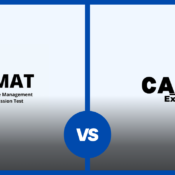
Do’s and Don’ts for Entrepreneurs Applying for an MBA
While entrepreneurship can be an immense learning experience in itself, an increasing number of entrepreneurs are opting for their MBA education to build on their experience and in turn enhance their probabtility of success through a formal business education. An MBA education can help entrepreneurs gain diverse perspectives from their cohorts, enhance their understanding of business through various case based learnings and get them a global network and a stamp of approval that can be critical for building their ventures. Additionally, an MBA can be a valuable platform for former entrepreneus looking to return to a formal corporate setup and leverage their learnings to make an impact in their organization.
For entrepreneurs, the MBA application processs, particularly the application essay, can be difficult to navigate given absence of formal corporate experience.
Thus, entrepreneurs need to keep in mind the following key aspects while applying for their MBA:
1. Highlight Notable Learnings / Experiences from Entrepreneurship:
Your entrepreneurial history might be a valuable to admissions committees looking to build a diverse class with different real-world experience.
Showing you can lead others, bounce back from setbacks, and easily handle tricky business situations is a great way to promote your entrepreneurial abilities. Incorporating relevant work experience into your MBA application strengthens your case and showcases how your achievements standout from other applicants..
2. Coordinate aspirations with MBA Purposes:
Make sure your post-MBA goals are crystal clear and explain how the MBA program fits into these plans. Describe how you want to advance your career using the program’s unique offerings , community , and opportunities.
You may indicate that you’re committed to using your MBA to enhance your entrepreneurship skills or transition in the full time corproate roles. Be clear it establish a linkage between your past experience and how you can utilize your education to evolve your professional career.
3. Stress on Teamwork and Leadership:
Consider when you were the team leader and everyone pulled together. Describe your experience leading teams, making a positive impact, and collaborating with others to accomplish company objectives. These skillsets and experiences will be valuable to admissions directors who are looking to build future leaders through their program.
Remember: Past performance is always a strong indicator of future potential.
4. Take the Lead in Filling Up Career Gaps:
In your MBA admissions essays, you should address any professional gaps or unusual paths that may have been part of your entrepreneurial journey. Make your decisions and the talents you acquired during these times very clear.
Give the admissions committee some background on your career gaps so they can better grasp your story. Additionally, it showcases skills highly sought after in MBA candidates: self-awareness and the capacity to transform obstacles into opportunities.
5. Get professional help to showcase your story and your profile:
Would you recommend hiring an MBA admissions consultant? Specifically, look for someone who has experience helping entrepreneurs. Expert consultants can shed light on what MBA schools are looking for, help you write essays that stand out, and give you pointers on how to best highlight your entrepreneurial experience.
Reason being: An MBA admissions consultant knows the ins and outs of the application process and can help you navigate its subtleties. They are well-versed in the complexities of admissions essays and can guide you through the process of crafting a compelling narrative that highlights your entrepreneurial spirit.
While applying as an entrepreneur, avoid the following common pitfalls:
1. Avoid Using Excessive Jargon:
Avoid Using too much technical language or jargon that readers outside your profession might need help understanding. Remember that the people on MBA admissions committees come from all walks of life, so being specific is essential.
This is why admissions essays must be written clearly. The committee may need help comprehending your accomplishments and contributions if you use too much jargon. Keep your MBA application writing simple and easy to understand.
2. Play Down Experience That Isn’t Entrepreneurial:
You should know that that your non-entrepreneurial involvements are just as valued as your commercial ones. Take benefit of the insights and knowledge you have received from your past words, doesn’t matter in a business environment or a different area.
Why: MBA degree to grow programs highly appreciate a wide range of backgrounds and viewpoints. Contributing to a well-rounded profile by highlighting the transferable abilities earned in non-entrepreneurial employment can showcase your capacity to adapt and prosper in many situations.
3. Ignore MBA Program Research:
Do not Send in vanilla essays that any MBA school might use. A lack of interest can be indicated if you don’t take the time to investigate each program thoroughly and write tailored essays.
The reason is that admissions committees highly value program-specific knowledge from applicants. Demonstrating commitment and careful consideration of the application process, you can tailor your essays to emphasize how particular features of each program correspond with your objectives.
4. Place Too Much Focus on Financial Objectives:
Do not Get an MBA if you are only interested in the financial benefits. Although achieving financial success is commendable, broadening your writings to highlight professional development, knowledge acquisition, and the positive influence you hope to have is essential.
The reason is that MBA programs seek people with diverse interests and goals. Your ability to make a positive, far-reaching contribution to the program may be undermined if your money aspirations are overemphasized.
5. Turn in Standard Essays:
In your essays, you should avoid using overused or generic phrases. Use concrete examples and anecdotes to highlight your experiences and accomplishments rather than generalizations.
The reason is that admissions officers go through many applications, and word-for-word essays need to be noticed. Telling a detailed and genuine tale draws the committee in and helps them relate to your experience.
In summary:
As an entrepreneur, you need a well-planned strategy to get through the MBA application process. By adhering to the guidelines provided here, you can write strong admissions essays highlighting your entrepreneurial path and meeting the requirements of the MBA programs you are seeking admission to.
To give yourself a leg up in the ardous MBA admissions process, hiring an admissions consultant, preferably one with experience with entrepreneurs, can be helpful. Crafting a compelling application shows that you are the type of candidate who views an MBA not just as a means to an end—the acquisition of knowledge and skills necessary to build a successful business.



